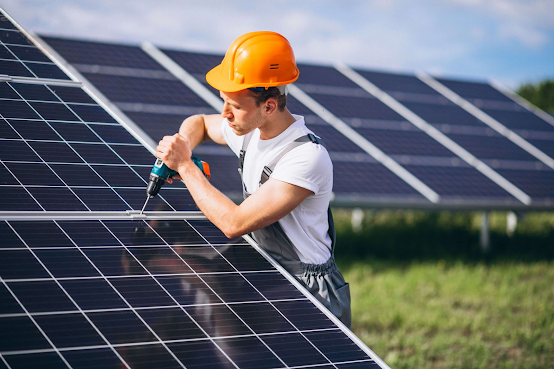Explore The Top Benefits Of Installing Solar Systems
We live in a world where electricity has never been more crucial. We use electricity for nearly everything. We use it to power our home or any other workplace for lighting fixtures, mobile devices, laptops and computers, etc. Because of that, the electricity demand has never been higher than before. As such, prices hike up too. Because of that many people are looking for alternative energy sources.
Many have been raving about the potential of solar energy as an alternative energy source. But, you'll need to install a solar system to limit the sun's power and turn it into electricity. This is where solar power comes in. Installing a solar inverter for your space’s energy consumption has various benefits. It can make significant savings from day one on electricity consumption, electricity bills, and carbon emissions. Let's have an in-depth look at the benefits of solar power.
Cost Savings
One of the most significant benefits of installing solar systems is the potential for cost savings. Although the initial cost of purchasing and installing a solar system can be high, solar power can save you money on your energy bills over the long term. By generating your electricity, you can reduce your dependence on the grid, avoiding the rising costs of traditional energy sources. For homeowners, solar panel installation can reduce monthly utility bills and sometimes provide income through net metering. For businesses, solar systems can provide significant cost savings by reducing energy expenses, allowing companies to allocate resources to other business areas.
Environmental Benefits
Solar systems are an environmentally friendly option for generating electricity. Solar power is a clean and renewable energy source that produces zero emissions, unlike fossil fuels that contribute to climate change. Installing solar systems can reduce your carbon footprint and help mitigate climate change's effects. The environmental benefits of solar systems extend beyond individual households and businesses. By adopting renewable energy systems, you can reduce your dependence on non-renewable energy sources and help to build a more sustainable future.
Increased Property Value
Installing a solar system can also increase the value of your property. Homes and commercial properties with solar systems are often more attractive to buyers and tenants, as they offer potential cost savings and a reduced carbon footprint. A study found that homes with solar systems sell 20% faster and for 17% more than homes without solar systems.
For commercial properties, installing a solar system can increase the overall value of the building and attract tenants who prioritize sustainability. This added value can help offset the initial cost of installing a solar system and provide a long-term return on investment.
Energy Independence
Solar systems offer energy independence that traditional energy sources cannot match. This independence can be especially valuable during power outages or other emergencies when the grid may be compromised. With battery backup systems, you can generate electricity, reducing your reliance on the grid and the fluctuating costs of traditional energy sources.
For businesses, energy independence means avoiding potential disruptions in operations and ensuring critical systems remain operational during power outages. This can be particularly valuable for companies that require an uninterrupted power supply, such as hospitals, data centers, and manufacturing facilities.
Government Incentives
Finally, installing solar systems can make you eligible for government incentives and rebates. Many governments offer tax credits, rebates, and other incentives for households and businesses that install solar systems. These incentives can offset the upfront costs of purchasing and installing a solar system, making it more accessible for many homes and businesses. For businesses, government incentives can provide an opportunity to invest in renewable energy without incurring significant upfront costs. By taking advantage of these incentives, businesses can reduce their energy expenses and improve their bottom line.
Off-grid Solar Systems
Off-grid power systems work independently of the grid but have batteries to store the system's solar power. The system usually consists of solar panels, a charge controller, a battery, a grid box, a mounting structure, an inverter, and a balance. Using an off-grid solar system means reducing electricity costs, avoiding power outages, easing installation in homes, keeping the environment clean and green, and presenting an alternative power source for rural areas. All of this is appealing to people who want to preserve money while helping mother nature.
In conclusion, installing solar systems offers numerous benefits for homes and commercial properties. From cost savings and environmental benefits to increased property value, energy independence, and government incentives, solar power is an attractive option for anyone who wants to save money on the energy bills and wants to reduce their carbon footprint on their energy bills. Consider installing a solar system to enjoy these benefits and help build a more sustainable future.




Comments
Post a Comment